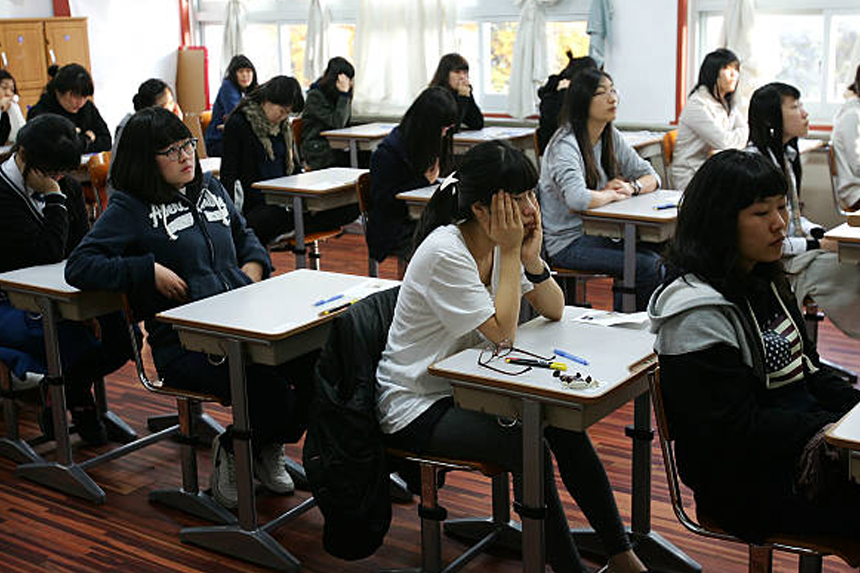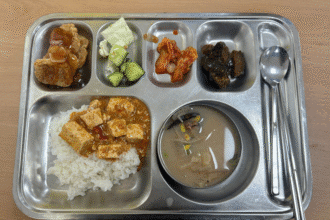Once more, a national silence has descended over South Korea as half a million kids sit down to face the Suneung, the university admission test renowned for its rigidity and impact on young lives. Held yearly, the eight-hour marathon test has changed daily activities throughout the nation and highlights the great importance South Korea gives academic excellence.
How Does the Nation Prepare for the Suneung?
Familiar policies were followed everywhere to ensure students could finish the Suneung exam without disturbance when it started on Thursday morning. Construction stopped, planes were grounded, and vehicles were urged to keep a tranquil environment by not blasting their horns.
Government authorities said that the test is considered a turning point in Korean students’ lives. “The Suneung has far-reaching consequences for students’ futures,” a spokesman for an education ministry stated. This is a major event for our society as well as a test.” Many South Koreans see the test as the pinnacle of years of official schooling, a rite of passage that shapes their university choices, future employment, and social level.
What Unexpected Distractions Are Students Facing This Year?
But students discovered this year that they were on great alert against another form of distraction: appealing pop music. Notably, “A.P.T.,” the worldwide hit by Blackpink’s Rosé and Bruno Mars, has been known among test-takers as a “forbidden” song since they worry its appealing melody will cause them to lose concentration during the test and become caught in their thoughts.
One student expressed concern about the appealing chart-top music playing in her thoughts even during the test. “For us, with such an important test ahead, it can feel unsettling; adults might laugh and say, ‘Why stress over something like that.'”
In past years, students have been similarly advised against other “earworm” songs; songs like B.T.S. ‘s “Go Go” and SHINee’s “Ring Ding Dong” are routinely highlighted in internet forums as tracks to avoid in the run-up to the test.
What Efforts Are Made to Minimize Disruptions?
Every year, the nation makes significant efforts to guarantee the Suneung runs without problems. Stores and the stock exchange opened late on Thursday to ease traffic so students and their families could travel without hassles. Authorities added over a dozen more trains on standby to avoid disturbances linked to breakdowns and raised the frequency of public transit options.
More than 10,000 police personnel were sent, some primarily assigned to assist students in reaching the testing venues in case of an emergency. Stringent noise control policies were followed for the 20-minute English listening section of the test; all flights were briefly grounded, and bus and taxi drivers were urged not to hoot.
“We make every possible effort to ensure that there is no external noise or disturbance that could harm pupils during the test, stated a Ministry of Transportation official. “We treat this exam seriously since it is vital for the students’ futures.”
Why Are Record Numbers of Students Retaking the Exam This Year?
The Suneung is under tremendous pressure, and disturbances are taken very seriously. Last December, a small error during the exam—professors unintentionally stopped a section of the test 90 seconds early—caused several hundred students to sue, underscoring the significance of the test in Korean society.
Driven in part by a recent decision to increase enrolment in medical schools, authorities are reporting a record number of students retaking the test this year. While some present medical students protested the announcement, others welcomed it as a second chance at success was much sought.
“This year’s Suneung feels like a make-or-break opportunity,” one prospect who chose to repeat the test given the policy change said. Although the stakes are significant, I’m eager to do it again with the growth in medical schools.








